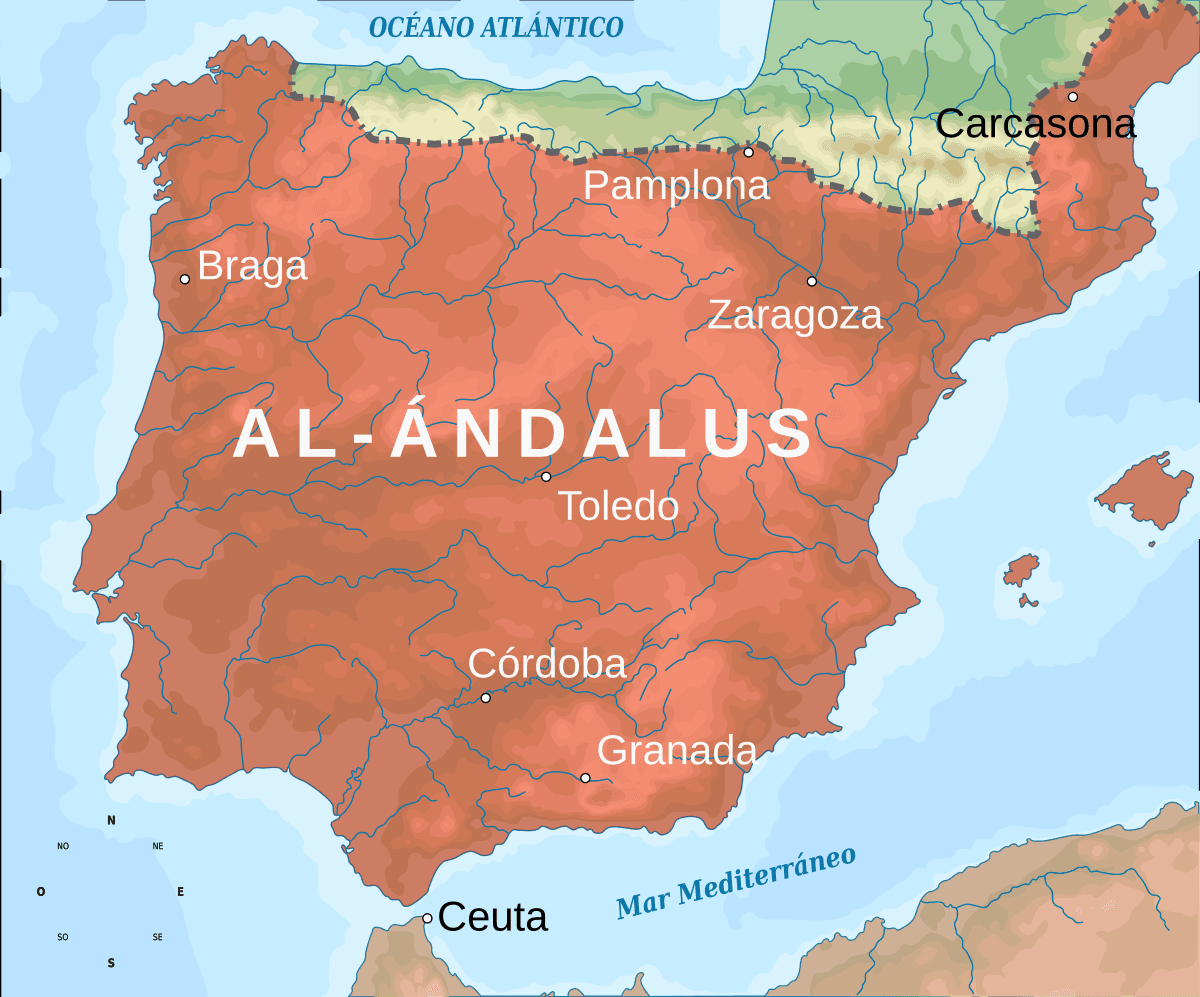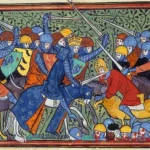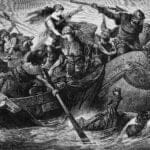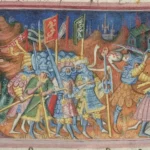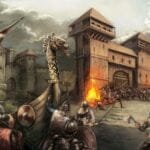Step back in time to the 8th century, a turbulent period when conquerors from the Muslim world left an everlasting mark on the Iberian Peninsula. They called their new kingdom Al-Andalus, and their presence there for the next 800 years would forever change the region’s history and culture.
The Eighth-Century Conquerors of Iberia: A New World Takes Shape
Imagine the year 711 AD. The Iberian Peninsula, a land we now know as Spain and Portugal, witnessed the arrival of a formidable force – the Muslim Umayyad Caliphate. Led by the brilliant general Tariq ibn Ziyad, these conquerors swept through the region, their arrival marking a pivotal turning point in Iberian history.
The existing Christian kingdoms in the north faced a new reality. This encounter ignited the Reconquista, a centuries-long struggle for control of the peninsula. This clash of cultures would ultimately shape the unique blend of traditions we see in Iberia today.
The conquerors, hailing largely from the Umayyad Caliphate, didn’t arrive empty-handed. They brought a rich tapestry of culture, a new faith – Islam – and the foundations for a powerful empire: Al-Andalus. Arabic rose as the language of scholarship and power, while architectural marvels like the Great Mosque of Córdoba emerged, showcasing their mastery of design. Al-Andalus transformed into a beacon of knowledge, where advancements in astronomy, philosophy, and medicine flourished.
Their impact extended beyond the realms of politics and culture. Innovative agricultural techniques, such as sophisticated irrigation systems and the introduction of new crops, revolutionized the economy. Trade flourished, connecting Iberia to the bustling markets of the Mediterranean.
Remarkably, amidst religious differences, a spirit of coexistence emerged. Muslim and Christian communities navigated their distinct identities, influencing each other’s traditions and giving rise to a rich tapestry of cultures. The legacy of the eighth-century conquerors is intricately woven into the very fabric of Iberia today, evident in its architecture, language, and the enduring spirit of its people.
Who Were the Eighth Century Conquerors of Iberia?
The Visigothic Kingdom, rulers of Iberia for centuries, were caught off guard by the rising power across the Strait of Gibraltar: the Muslim Umayyad Caliphate. In 711 AD, Tariq ibn Ziyad, a cunning Umayyad general, led his forces across the strait, achieving a swift and decisive victory against the unprepared Visigoths.
This victory wasn’t merely a change in rulers; it marked the birth of Al-Andalus, a Muslim realm destined for greatness. For centuries, Al-Andalus thrived under the Umayyad Caliphate, its influence extending far beyond military might. These conquerors brought a vibrant culture, a thirst for knowledge, and a legacy that would indelibly shape Iberia. Al-Andalus blossomed into a renowned center of learning, renowned for its advancements in astronomy, philosophy, and medicine.
Let’s Recap:
- The Muslim Umayyad Caliphate, a force to be reckoned with, set their sights on Iberia in the 8th century.
- Their leader, the ingenious Tariq ibn Ziyad, spearheaded the conquest, outsmarting the Visigoths in 711 AD.
- The Visigothic Kingdom crumbled, making way for Al-Andalus, a Muslim territory that thrived for centuries.
- Al-Andalus wasn’t just about power; it became a hub of knowledge and culture, celebrated for its progress in science, philosophy, and the arts.
Want to dive deeper? Check this out:
- Britannica, The Editors of Encyclopedia. “Umayyad Caliphate” [https://www.britannica.com/topic/Umayyad-caliphate]].
The Conquest of Iberia: A Timeline of Events
Let’s delve into a timeline of the events that unfolded during the conquest of Iberia:
Taking Root: The Arrival of Islam (711 AD)
In 711 AD, a force of Arab and Berber warriors, led by Tariq ibn Ziyad, crossed the Strait of Gibraltar. Their arrival wasn’t a mere visit; it marked the beginning of a conquest that would redefine the destiny of the Iberian Peninsula. They established Al-Andalus, a new empire that would forever alter the course of Iberian history.
The Golden Age of Al-Andalus (756-929 AD)
The rise of the Umayyad Caliphate in Córdoba ushered in a golden age for Al-Andalus. This period witnessed unprecedented growth and prosperity, driven not only by power but also by a deep appreciation for the arts, science, and philosophy. Rulers like Abd ar-Rahman I, patrons of knowledge, left behind architectural marvels such as the Great Mosque of Córdoba, enduring testaments to their commitment to beauty and intellect.
Fractures and Fights: The Reconquista Begins (1009-1481 AD)
Like all empires, the Umayyad Caliphate faced internal strife and external threats, eventually fragmenting into smaller kingdoms known as taifas. Christian kingdoms to the north seized this opportunity to launch the Reconquista, a piecemeal effort to reclaim the Iberian Peninsula.
The Walls Come Down: The Fall of Granada (1481-1492 AD)
Granada, the last Muslim stronghold, became the setting for the final act of this historical drama. Ferdinand and Isabella, the Catholic Monarchs of Spain, led a persistent campaign, tightening their grip on the city year after year. Finally, in 1492, Granada fell, marking the end of Muslim rule in Iberia and the completion of the Reconquista.
Echoes of the Past: The Legacy of Conquest
The impact of the Muslim conquest transcended politics; it left an indelible mark on Iberian society. Even today, we can marvel at the architectural wonders of Al-Andalus, such as the awe-inspiring Alhambra in Granada. They introduced new agricultural practices and scientific knowledge that transformed the way people lived. Perhaps the most enduring legacy is the seamless blending of cultures – a vibrant fusion of Muslim and Christian traditions reflected in the languages spoken, the music played, and the stories told throughout Iberia.
Want to learn more? Check out this resource:
What Motivated the Umayyad Conquest of Iberia?
The Umayyad Caliphate’s ambition to conquer Iberia was fueled by a potent mix of faith, ambition, and a desire for wealth. Their venture into Iberia wasn’t a casual expedition; it was a calculated move driven by several compelling factors:
Money Talks: The Economic Allure of Iberia
The Umayyad Caliphate, like any empire, recognized the importance of economic strength. Iberia, with its fertile fields, rich mineral deposits, and strategic location, represented a treasure trove of economic potential. Controlling Iberia meant securing lucrative trade routes, tapping into new markets, and exploiting the peninsula’s abundant natural resources. This recipe for economic prosperity was simply too enticing to resist.
Empires on the Rise: Political Ambitions and Expansion Dreams
Beyond the allure of wealth, the Umayyads were driven by a thirst for power and prestige. Having conquered vast territories, they saw Iberia as a strategic gateway to Europe and a chance to further expand their empire. Conquering Iberia wasn’t just about adding another victory to their name; it was about solidifying their authority, extending the reach of their Caliphate, and establishing themselves as the dominant force in the Mediterranean.
The Faith Factor: The Spread of Islam
Religion, specifically Islam, was deeply intertwined with the Umayyad worldview. They viewed the conquest of Iberia not just as territorial expansion, but as a holy mission, a jihad, against the ruling Christian Visigoths. They were driven by a desire to spread the word of Islam, establish a Muslim state in new lands, and fulfill what they believed to be a divine mandate.
Trouble at Home: Push Factors from North Africa
Internal conflicts and political instability in North Africa added another layer to their Iberian ambitions. Launching a grand military campaign across the Strait of Gibraltar served two strategic purposes: diverting attention from internal struggles and consolidating their power base. It was a calculated move to strengthen their position at home by seeking conquests abroad.
In a Nutshell: A Tapestry of Motivations
The Umayyad conquest of Iberia was a complex event driven by a combination of economic desires, political aspirations, religious zeal, and strategic maneuvering.
Don’t miss these fascinating historical insights:
Many historical events happened in the 8th century. Discover when the 8th century was and know who invaded Spain around that time.
Key Points to Remember:
- The eighth-century Umayyad Caliphate’s conquest brought dramatic changes to the Iberian Peninsula.
- They established the Al-Andalus empire, introducing Islamic culture, a new faith, and architectural marvels.
- The Reconquista, a centuries-long conflict between Christian and Muslim kingdoms, ensued.
- Arabic became the language of power and influence, and Andalusian art and architecture flourished.
- Al-Andalus became a center of learning, advancing knowledge in astronomy, philosophy, and medicine.
- Innovative farming techniques introduced by the conquerors transformed the economy and trade.
- Despite religious differences, Muslim and Christian communities coexisted, influencing and enriching each other’s cultures.
- The legacy of the eighth-century conquerors continues to shape the Iberian Peninsula today.
This multifaceted conquest, driven by a combination of factors, left an indelible mark on the course of history, shaping the cultural, religious, and social landscape of the Iberian Peninsula for centuries to come.
- Unlock Filipino Culture: A Deep Dive into Traditions and Practices - April 23, 2025
- Unlock Spanish Culture: Insights & Opportunities Now - April 23, 2025
- White Spirit Uses & Substitutes: A Deep Dive for Pros & DIYers - April 23, 2025
